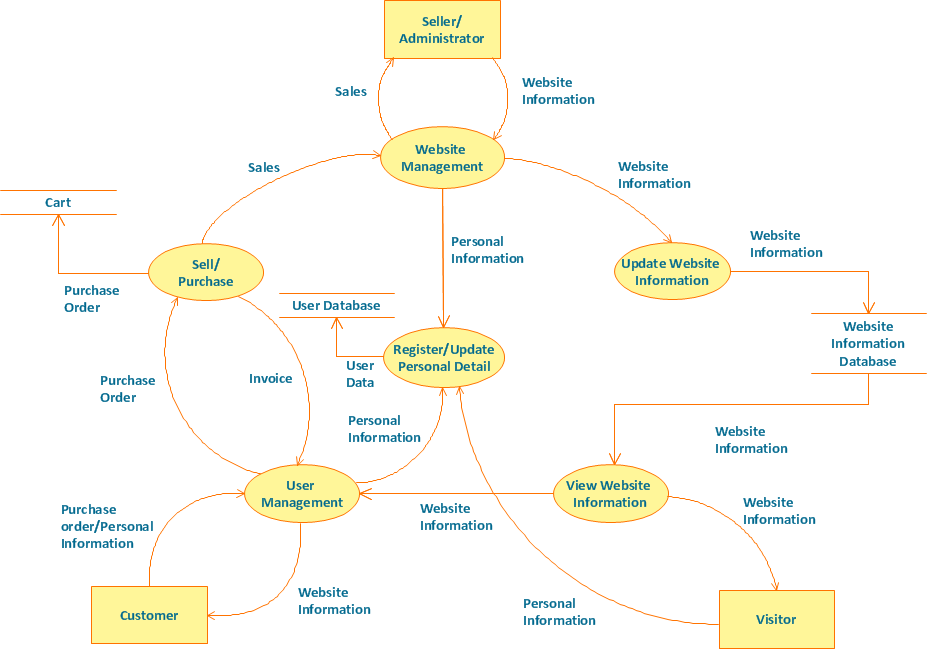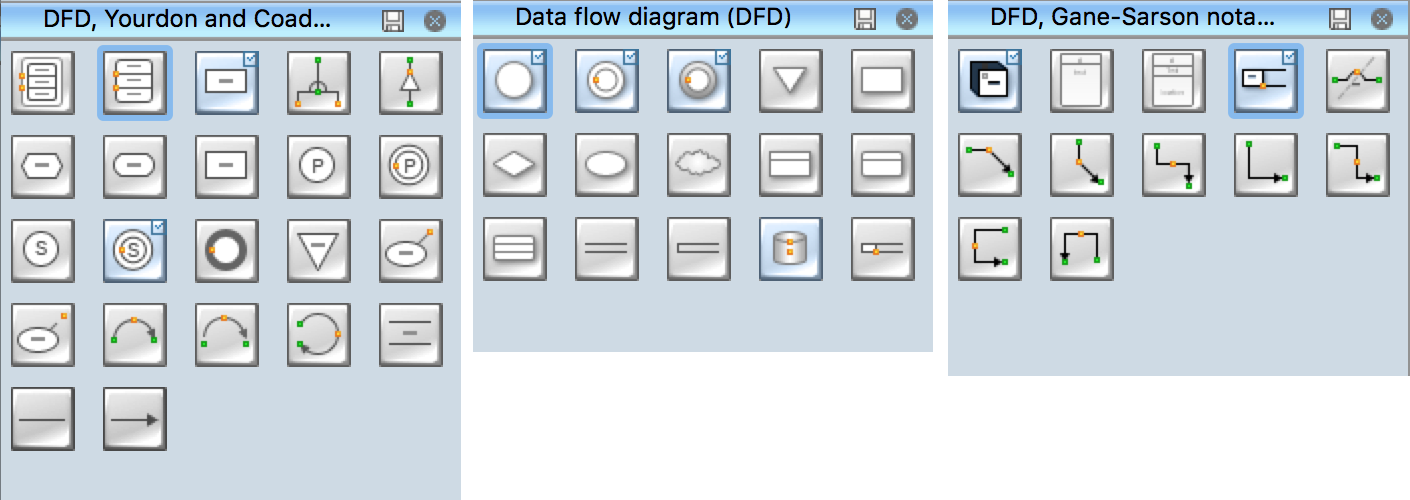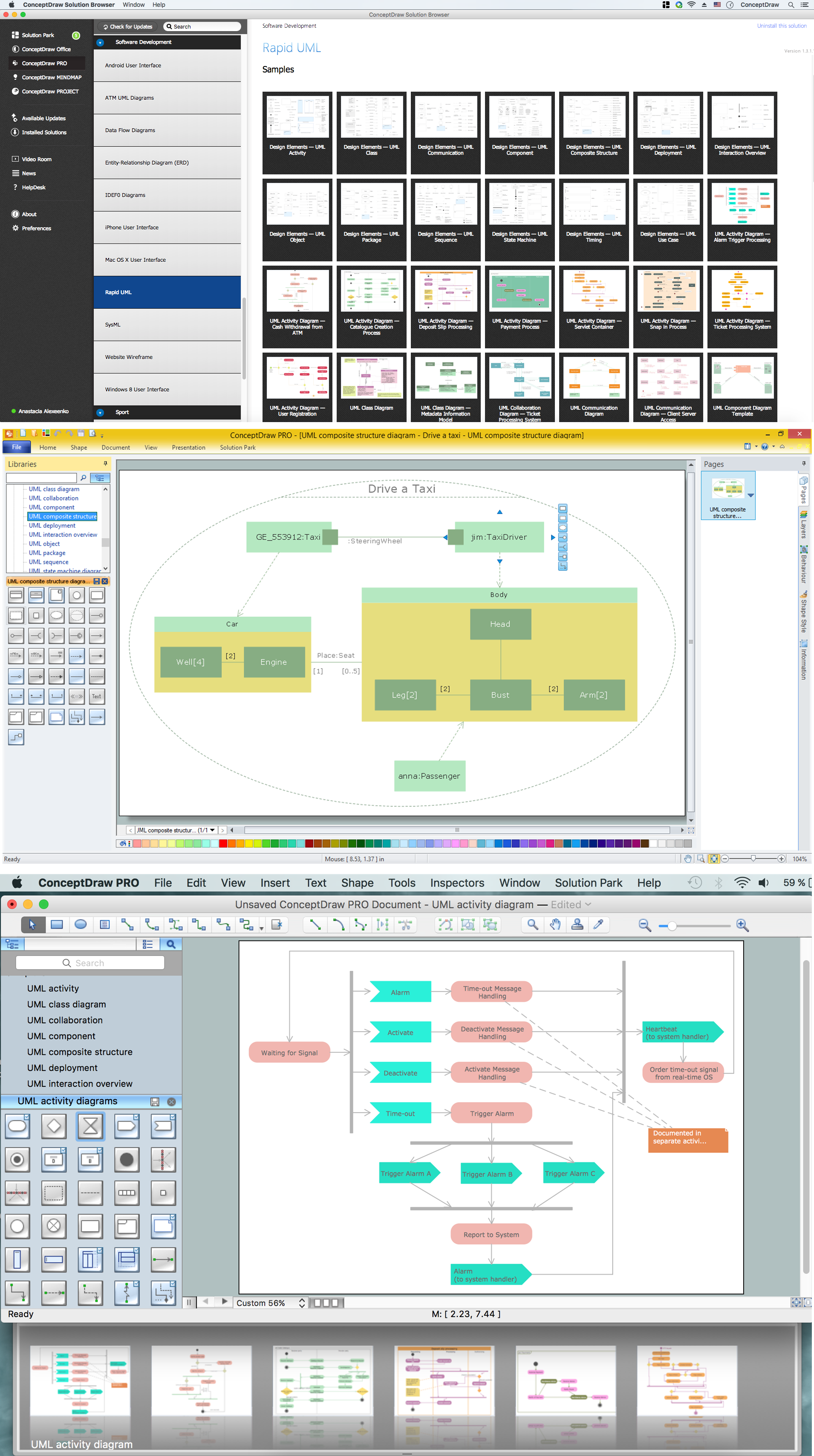Example of DFD for Online Store (Data Flow Diagram)
Data Flow Diagram (DFD) is a methodology of graphical structural analysis and information systems design, which describes the sources external in respect to the system, recipients of data, logical functions, data flows and data stores that are accessed. DFDs allow to identify relationships between various system's components and are effectively used in business analysis and information systems analysis. They are useful for system’s high-level details modeling, to show how the input data are transformed to output results via the sequence of functional transformations. For description of DFD diagrams are uses two notations — Yourdon and Gane-Sarson, which differ in syntax. Online Store DFD example illustrates the Data Flow Diagram for online store, the interactions between Customers, Visitors, Sellers, depicts User databases and the flows of Website Information. ConceptDraw DIAGRAM enhanced with Data Flow Diagrams solution lets you to draw clear and simple example of DFD for Online Store using special libraries of predesigned DFD symbols.
DFD Flowchart Symbols
A Data Flow Diagram (DFD) is a graphical technique which allows effectively model and analyze the information processes and systems. The ability to fast and easy create the DFDs is made possible with Data Flow Diagrams solution from the Software Development area of ConceptDraw Solution Park. For designing the Data Flow Diagrams are used simple DFD flowchart symbols which are connected each other by arrows depicting the data flow from one step to another.
 Bubble Diagrams
Bubble Diagrams
Bubble diagrams have enjoyed great success in software engineering, architecture, economics, medicine, landscape design, scientific and educational process, for ideas organization during brainstorming, for making business illustrations, presentations, planning, design, and strategy development. They are popular because of their simplicity and their powerful visual communication attributes.
How to create your UML Diagram
The UML diagrams in this Solution are divided into three broad categories: Structure Diagrams; Behavior Diagrams; Interaction Diagrams. The 13 diagrams contained in the Rapid UML Solution offer an essential framework for systems analysts and software architects to create the diagrams they need to model processes from the conceptual level on through to project completion.- Er Diagram For Medical Store Management System
- 1 Level Dfd And Erd Of Medical Management System Project
- Er Diagram Of Shop Management System
- Medicine Management System Project Dfd
- ER Diagram For Medical Management
- Store Management Er Diagram
- Data Flow Diagram For Store Management System
- Er Diagram Of Medical Store Step By Step Showing System
- Er And Dfd For Shop Management System
- Dfd Diagram From Medical Store Management
- Data Flow Diagram Of Medical Store Management System
- Sequence Diagram Of Medical Stores Management System
- Entities Involved In Medical Shop Management
- ER Diagram Of Medical Store Database Management System
- Components of ER Diagram | DFD Flowchart Symbols | Product ...
- Data Flow Diagram For Medical Shop Management System
- Medical Store Management System Documentation
- First Level Dfd For Medical Store Management System
- Er Digram For Medical Management
- Medical Store Management System Use Case Diagram With


